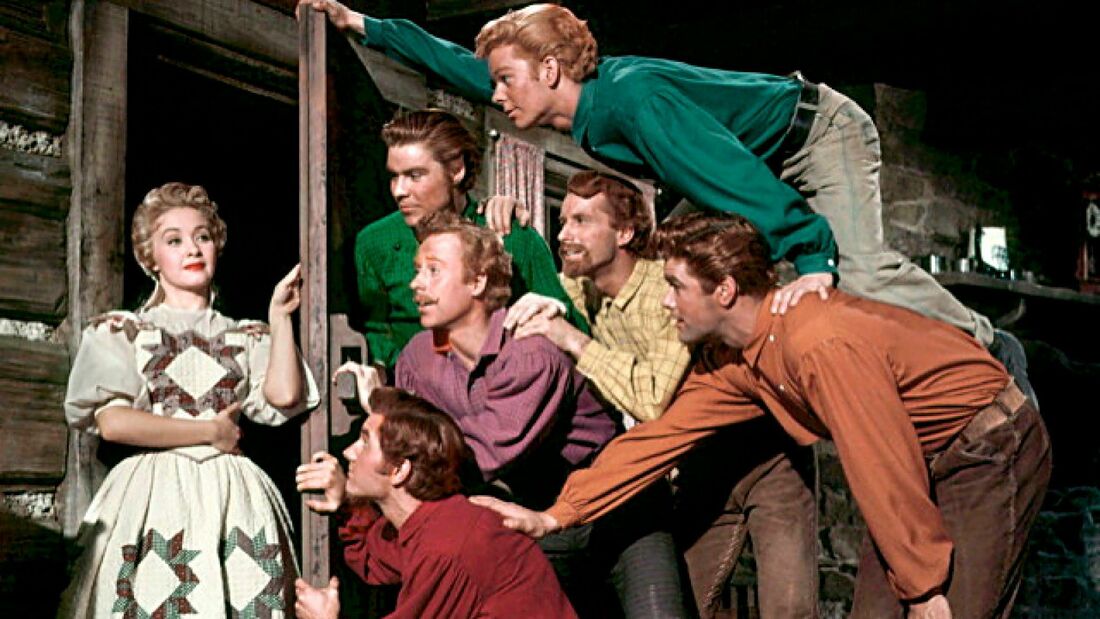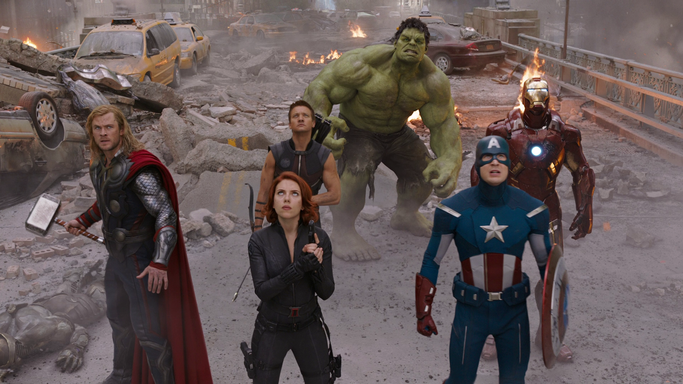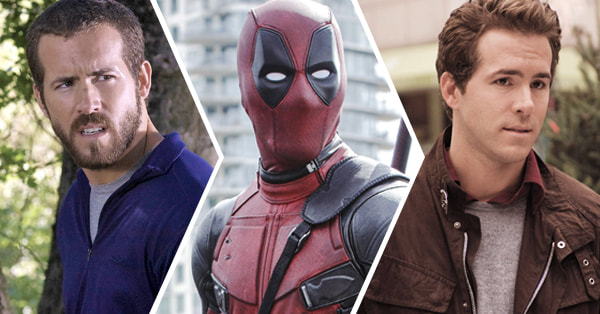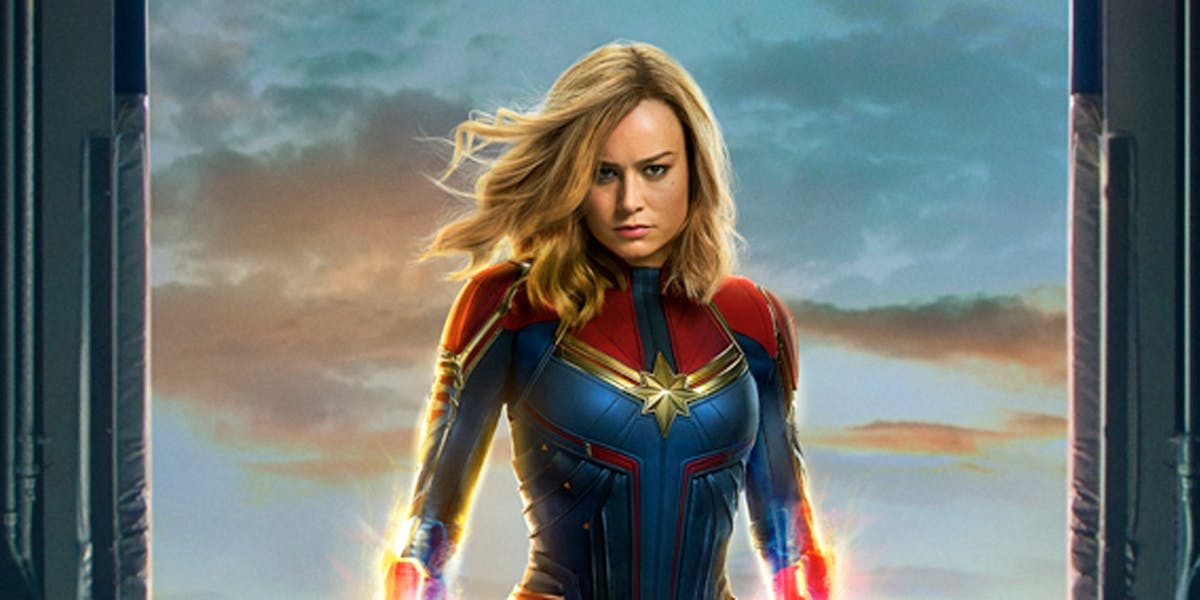“Where have all the good men gone?/And where are all the gods?/Where’s the streetwise Hercules to fight the rising odds?/ Isn’t there a white knight/ Upon a fiery steed?/ Late at night, I toss and I turn/ And I dream of what I need….”
Bonnie Tyler, “Holding Out For a Hero”
Inspired by Italian commedia dell'arte and classic Shakespearean and Wildean comedies, filmmakers have taken the “boy meets girl” plot device and added humor - creating what we call “romantic comedies” - since the Silent Era. Sherlock Jr. (Keaton, 1924) and Girl Shy (Newmeyer & Taylor, 1924) kicked off the genre in American cinema, and it continued to build on itself ever since, taking slightly different forms each decade. (Yehlen 1) In the post-World-War era, for example, MGM made millions off of musical romantic comedies like Seven Brides for Seven Brothers (Donen, 1954). Romantic comedies were a resume staple for actors. Garry Marshall and Nora Ephron built their careers on rom-coms, and careers of many of today’s biggest stars, including Julia Roberts, Meg Ryan, Sandra Bullock, Matthew McConaughey and Ryan Reynolds, got their start with them as well.
Technically, the superhero movie has been around since Richard Donner’s Superman in 1978. However, the cinematic “superheroissance” began with X-Men (Singer, 2000). Instead of an individual hero, X-Men focused on a team of superheroes - a predecessor to Marvel’s Avengers movies. Spider-Man (Rami, 2002) was released soon after and is also notable to the history of superhero movies. The Marvel Cinematic Universe (MCU) began with Iron Man (Favreau, 2008). The Avengers (Whedon, 2012) was the first of its kind. Similar to Godzilla movies or the ever-popular TV crossover event, it brought different heroes/villains together. These films created a successful formula that we’ve seen replicated multiple times annually ever since.
So, why are superhero movies so profitable right now? What drives the demand? In a tense political climate, the idea of rescuing has more appeal than ever. With the average person’s trust in the media and government declining, according to 2018 findings from the Pew Research Center, we can no longer count on politicians and major media outlets to save us, if we ever could. Romantic comedies are often critiqued for falling into genre conventions, but superhero movies have them, too. These films play on our emotions and require the same “suspension of disbelief” as rom-coms. They even feature some of the same actors. The Proposal’s (Fletcher, 2009) pretty boy, Ryan Reynolds, starred in Green Lantern (Campbell, 2011) before his star turn as Deadpool, “The Merc With a Mouth” in the eponymous Tim Miller film and its 2018 sequel, and Heath Ledger’s Oscar-winning portrayal of the Batman villain Joker was one of his last roles before his death. However, unlike romantic comedies, which create one-off situations, most superhero movies are threads in an overarching narrative. The highly detailed storylines and intense parasocial relationships they create drive fans to the box office and to purchase merchandise and create buzz on social media and online in a way that romantic comedies haven’t been able to sustain in the past. Hollywood gives the people what they want, and right now, that's superhero movies.But it isn't just superhero movies’ superior marketability that is killing off the rom-com….
Part of what makes classic, pre- or early-Internet rom-coms like Harry Met Sally (Reiner, 1989) still fun to watch for modern viewers is their datedness. The technology - and their outfits - are laughable. However, there are some places rom-coms show their age that aren’t so funny…. The typical rom-com reflects traditional attitudes about gender, sexuality, race, class, beauty and more...attitudes that the culture at large has moved on from. For example, same-sex marriage has only been legal in the US for less than five years, but LGBT+ individuals and their rights are being more recognized and accepted...but still not represented in romantic comedies as more than the “gay best friend.” Furthermore, the typical romantic comedy man feels less believable in the days of #MeToo, which revealed that Bill Cosby, Matt Lauer and other figures who seemed like trustworthy paragons of male virtue, had really been preying on women for decades. Like in the days of second-wave feminism, women find themselves saying “Do I really need a man?” Even the new What Women Want (Meyers, 2000) remake What Men Want (Shankman, 2019) featuring Taraji P. Henson doesn’t deliver what 2019 audiences want. According to Entertainment Weekly critic Dana Schwartz, “...the film’s approach to gender dynamics is about the same as a beer commercial where a lazy husband on the couch can’t watch football in peace because his wife keeps trying to take him antiquing. Whereas this movie could easily have been fresh and nuanced — and funnier! — it resorts instead to tropes as lazy as that beer-wanting couch husband. ”
Romantic subplots are also being integrated into other genres. The aforementioned Deadpool is a “superhero romantic comedy;” even children’s films like Mary Poppins Returns (Marshall, 2018) have romantic subplots. The grand romantic gestures that used to belong to rom-coms are happening outside of films where romance is the driving force. We’re getting our humor elsewhere, too. The romantic comedy has been replaced with raunch comedies like The Hangover (Phillips, 2009), Blockers (Cannon, 2018) and their woman-centered counterparts like Girls’ Trip (Lee, 2017).
“I want to know what love is:” What are we missing with a lack of rom-coms?As discussed previously earlier, romantic comedies are critiqued for portraying sex and gender in ways that some consider outdated, or even offensive. However, superhero movies can't escape scrutiny. Black Widow was the only female Avenger for many years, and only the most recent films have started giving her the common decency of character development. Her first appearances (like Tony Stark ogling her while boxing in Iron Man 2, or escaping from her Avengers captors doing high kicks in a little black dress) emphasize her sexuality over her spy-dentity. It took Marvel 10 years to make an African-American led superhero film despite having several black Avengers who they could have featured, and dragged their feet even longer with putting out a female-centered flick: 2019’s Captain Marvel (Boden & Fleck, 2019). (For once, DC cinema had the upper hand; they released Wonder Woman (Jenkins) in 2017). Superheroines might be more empowering than their rom-com sisters, but both genres still have a long way to go. Technology and shifting cultural norms have changed the pursuit of love, sex and romance, but none of those things are dead, and the romantic comedy shouldn't be either.
Works Cited
Gilbert, Sophie. “An Updated ‘Company’ For Single Women” The Atlantic. 29 November 2016. https://www.theatlantic.com/entertainment/archive/2016/11/company-sondheim-sexual-politics/508895/ Accessed 25 February 2019.
Krawczyk, Kathryn. “Disney Buys Fox for $71.3 Billion” The Week. https://theweek.com/speedreads/780191/disney-buys-21st-century-fox-713-billion 20 June 2018. Accessed 3 March 2019.
Sandwell, Ian. “Will Avengers: Endgame Be The Biggest Movie Of All Time?” Men’s Health. 11 February 2019. https://www.yahoo.com/lifestyle/avengers-endgame-biggest-movie-time-142200462.html Accessed 25 February 2019.
Schwartz, Dana .“What Men Want Delivers Some Fun, But Leaves Us Wanting: EW Review” Entertainment Weekly. https://ew.com/movie-reviews/2019/02/07/what-men-want-review-taraji-p-henson/ Accessed 3 March 2019.
Yehlen, Shanna “A Brief History of Romantic Comedies.” Glamour. https://www.glamour.com/story/a-brief-history-of-romantic-co Accesssed 3 March 2019.





 RSS Feed
RSS Feed
